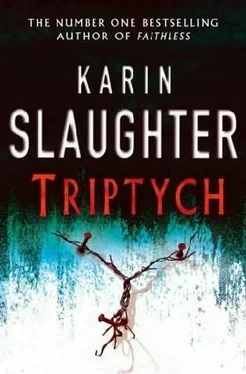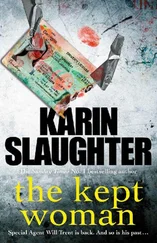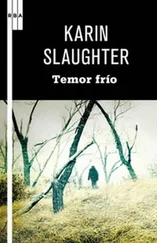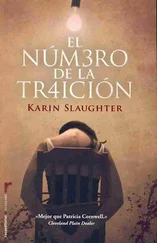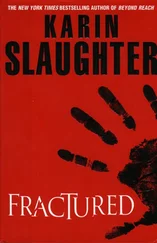Driving to Miriam Monroe’s house was an exercise in patience. Will ignored the angry stares and nasty shouts as he slowly made his way up DeKalb Avenue. The Monroes lived in Decatur near Agnes Scott College, a pricey little area with old Victorians and the sorts of houses most people could only dream about. Fortunately, the neighborhood wasn’t large and with a little trial and error, he would find her house before the sun went down.
Will tapped his foot on the brake as he followed the fork across the railroad tracks and onto College Avenue. He tried not to take it personally when a skinny old woman in a powder blue Cadillac sped past him, her fist shaking in the air.
With great effort, Will had managed to push Angie from his mind. He needed to work the case from the beginning to see if there was anything he had missed. There had to be some detail, some clue, that he just wasn’t picking up on.
Thirty-two Paisley Avenue was a grand old home with a wraparound porch and a massive weeping willow draping its branches across the front yard. The house was sandblasted brick on the bottom and darkly painted shingles along the top. The tile roof was covered with pine needles, and Will imagined with the large number of trees in the yard, the Monroes had a constant battle on their hands just keeping the gutters clean.
He parked his car on the street and double-checked the mailbox, making out the name MONROE in bold black letters. Still, he checked the street number against the address from the envelope.
The doorbell was the old-fashioned kind that was an actual bell mounted to the center of the heavy front door. Will twisted the bow-tie piece of metal and could hear the shrill ring echoing in the house.
Footsteps clicked on tile; a woman’s as well as a dog’s.
“Hello?”
Will assumed a wary eye was pressed to the peephole in the door. This was a nice neighborhood, but they were still close enough to Atlanta to make the residents careful about opening their doors to strangers.
“I’m Agent Will Trent with the Georgia Bureau of Investigation,” Will said, holding up his identification. “I’m looking for Miriam Monroe.”
There was a hesitation, maybe a sigh, then the bolt was turned and the door opened.
Miriam Monroe looked just like her daughter. At least, her daughter would have looked like this had she lived a different life. Where Aleesha had been malnourished, almost skeletal, her mother was a robust woman, with long curly hair and an open way about her that seemed to invite people in. There was a glow in her cheeks, a sparkle in her eyes, and even though her mouth was pursed as she stared at Will, her expression guarded as she waited for him to speak, he could tell that she was the sort of woman who sought out the positive in life.
He looked down at the black poodle standing at her feet, then back up at the woman. “I’ve come about your daughter.”
Her hand went to her chest. She grabbed the door to steady herself. “Ashley…?”
“No,” he assured her, reaching out to hold the woman up. He’d never considered she had more than one daughter. “Aleesha,” he told her. “I’ve come about Aleesha.”
She blinked several times, looking confused. “What?”
Will had a confused feeling himself. Had he read the mailbox wrong? Was he on the wrong street? “You’re Miriam Monroe?”
She nodded. The dog barked, sensing trouble.
“I’m sorry,” Will apologized to the woman. “I was told you had a daughter named Aleesha.”
“I did have a daughter,” she agreed. Her voice was faraway, as if she had lost her child long ago, which by her next words was exactly how she felt. “Aleesha left us when she was a teenager, Officer. We haven’t seen her in nearly twenty years.”
Will wasn’t sure what to say. “May I come in?”
She smiled, stepping back from the door, gently moving the dog with her foot. “I’ve forgotten my manners.”
“It’s fine,” Will assured her, thinking that no matter how many times he did this, he would never be able to predict how a parent would react to news of their child being lost.
She suggested, “Shall we go into the parlor?”
Will was trying not to gawk at the foyer, which was the largest he had ever seen in a private home. A huge staircase spiraled up to the top floor and a chandelier that looked as if it belonged in an opera house dangled above his head.
“We got it in Bologna,” Miriam explained, leading him into the adjoining room. “My husband, Tobias, is an amateur collector.”
“Oh,” Will said, as if that made perfect sense. He thought about the homes he had visited over the last few days, Aleesha’s shabby two rooms, the cramped apartment where Eleanor Allison raised her grandchildren. This was a mansion, plain and simple. From the thick rugs on the floors to the colorful African folk art on the walls, this was the type of place you lived in when money wasn’t a concern.
Miriam sat back in a comfortable-looking chair as the dog settled at her feet. “Would you like some lemonade?”
“No, thank you,” Will told her, sitting on the couch. The cushions were hard and he guessed they didn’t use this room much. He wondered if the grand piano tucked under the bay window was just for show. He also wondered what the hell he was doing. Will had learned a long time ago that giving a parent the news that their child was dead should be done quickly. Dragging it out only made it harder when the information finally came. Will wasn’t Miriam Monroe’s best friend; his job was simply to tell her the truth, then leave.
So, why wasn’t he?
Maybe it was because there was something soothing about the woman’s voice, her presence. Her face could have been the illustration dictionaries used for “mother.” When Will was a kid, he had assumed that black kids were more loved than whites for the simple reason that of the hundred or so kids at the Atlanta Children’s Home, there were only ever two African-Americans. Funny how stereotypes got stuck in your head when you were little.
“How can I help you?” she prompted. Her voice was very cultured, and she managed to glance at her watch without looking impatient.
“I’m sorry I frightened you. I assumed the woman I talked to on the phone earlier told you that I called.”
“She mentioned someone called, but I wasn’t expecting a policeman on my doorstep.”
“I’m sorry,” Will repeated, taking out a spiral notebook and a pen. He used this for show, mostly to let people know he was paying attention. He had clicked on his recorder when he’d taken the pen out of his breast pocket.
He said, “You don’t seem surprised that I’m here about Aleesha.”
“I suppose I’m not. Aleesha chose a life for herself that her father and I did not agree with. I’m sure you won’t be surprised to know that you’re not the first police officer to knock on our door.” She smiled, but there was something more guarded about her manner. “If you think we can lead you to her, I’m sorry to say that we cannot.”
Despite, or maybe because of, the woman’s poise, Will knew that this was not going to be easy. “Where is your husband now?”
“He’s giving a lecture in New York,” she explained. “He specializes in health issues affecting women.”
Will scribbled something in his notebook. “I see.”
“You think it’s ironic that a man who has devoted his life to helping women has a daughter who is a prostitute and a drug addict.”
“Yes,” Will admitted. “I do.”
She sat back in the chair, seemingly relieved that they had gotten that out of the way. “We did everything we could to try to help our daughter.”
“I’m sure you did.”
“Are you really?” she asked, as if she wanted to catch him off guard. “We spent thousands of dollars on treatments, family therapy, individual therapy. Anything we thought would help her, we did.” She clasped her hands in her lap. “The simple fact was that Aleesha did not want help. She started running away before she turned thirteen.”
Читать дальше
